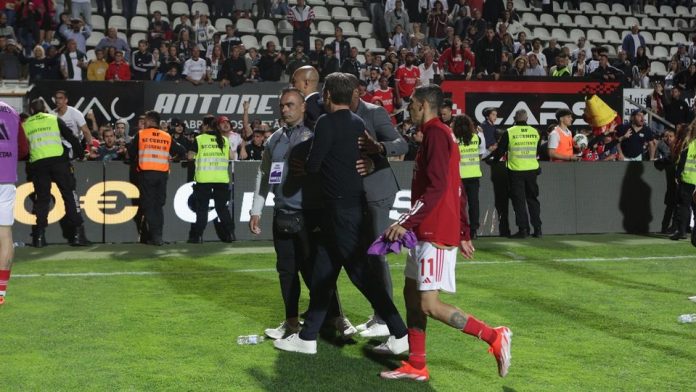Benfica, one of Portugal’s most storied football clubs, has recently found itself in a state of uncertainty and transition. The current head coach, Roger Schmidt, is facing challenges that echo those experienced by his predecessors at the iconic Estádio da Luz.
The club’s history is marked by periods of success and upheaval, with each coach facing unique circumstances and pressures. Schmidt’s situation is reminiscent of past coaches such as Rui Vitória and Bruno Lage, who also grappled with intense scrutiny and criticism during their tenures.
Looking back at the reign of Jorge Jesus, the first coach to depart after winning a championship, there were pivotal moments that shaped the club’s direction. Despite facing setbacks in crucial matches, Jesus was ultimately supported by the management, a decision that yielded further success in the following seasons.
Under the leadership of Luís Filipe Vieira, who oversaw the triumphs of Jesus, Vitória, and Lage, there were notable instances where tough decisions had to be made. Vieira’s reversal on his initial choice with Vitória and subsequent backing of Lage showcased the complexities of managing a top-tier football club.
Both Vitória and Lage encountered significant opposition from fans and stakeholders, ultimately leading to their departures. The challenges they faced, including personal attacks and vandalism, underscored the intense pressure that comes with coaching a club as prestigious as Benfica.
The recurring pattern of discontent and upheaval surrounding the club’s champion coaches raises questions about internal dynamics and strategic decision-making. It is essential to analyze the factors that contribute to such situations and ensure alignment within the club’s leadership to prevent further disruptions.
Navigating the intricate balance between fan expectations, media scrutiny, and internal politics requires a nuanced approach. Effective communication and strategic planning are crucial in managing perceptions and maintaining stability within the club.
As Benfica looks towards the future, it is imperative to learn from past experiences and implement measures to foster a supportive and cohesive environment for coaches and players alike. By addressing underlying issues and fostering a culture of unity and resilience, the club can navigate challenges and strive for sustained success in the competitive landscape of Portuguese football.




















































